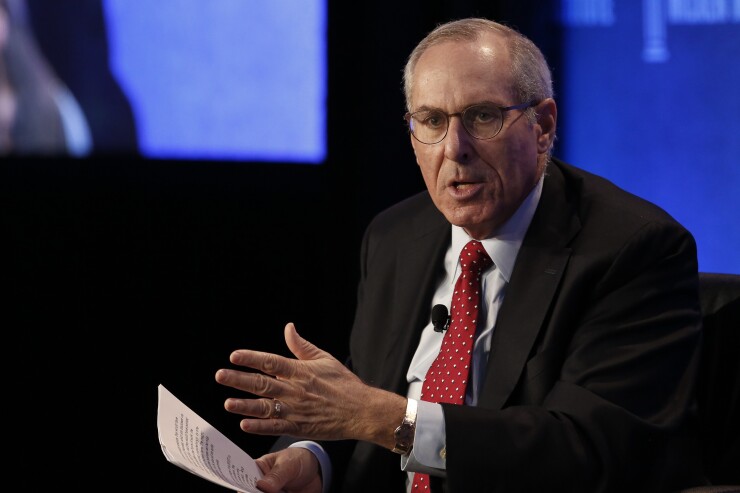The Treasury Department and a key housing regulator are preparing to fill a second possible vacancy atop
Officials at Treasury and the Federal Housing Finance Agency have begun discussions on finding a successor for Freddie Mac Chief Executive Officer Donald Layton, who they expect will announce that he wants to step down in the coming months, according to people familiar with the matter who asked not to be named because the discussions are private.
The search for a replacement is likely to involve the company's board as well as input from Washington policymakers. No timing has been given for an announcement of Layton's plans.
"As we've said consistently, when we are ready to announce something, we will," said Freddie spokesman Christopher Spina. A spokeswoman for the FHFA declined to comment. A spokeswoman for Treasury didn't respond to a request for comment.

Layton, 68, has led Freddie Mac since 2012, a period during which the McLean, Va., company returned to profitability after having been bailed out by the government at the height of the crisis. Regulators seized Freddie and larger rival Fannie Mae in 2008 eventually injecting them with $187.5 billion to keep them afloat.
Fannie and Freddie don't issue mortgages. Instead, they buy loans from lenders, wrap them into securities and make guarantees to investors in the bonds in case borrowers default. That process is crucial to the housing market because it frees up cash for lenders to underwrite more mortgages.
Speculation about Layton's plans follows an announcement in July that
A potential hurdle to finding executives to replace Layton and Mayopoulos is that Congress in 2015 capped pay for the CEOs of Fannie and Freddie at $600,000 a year. Lawmakers did so after the FHFA, which oversees the two companies, approved raises that could have increased compensation to about $4 million annually.
Layton, who was CEO of E-Trade Financial Corp. and a vice president at JPMorgan Chase & Co. before taking the Freddie role, said he always viewed it as public service.
"I do not regard this as going to a traditional corporate job," he said in a 2012 interview. "I think the biggest part of the job will be to have the company operate well in a tough situation."





